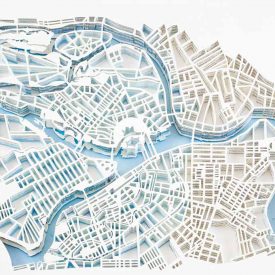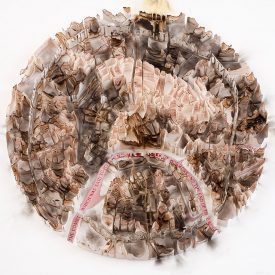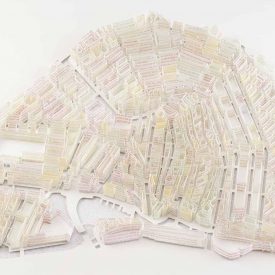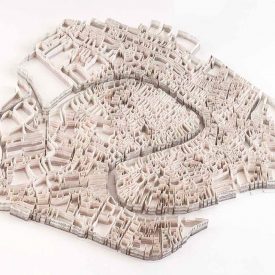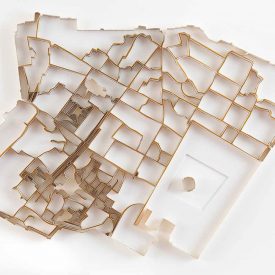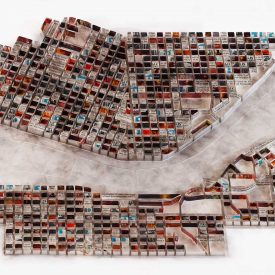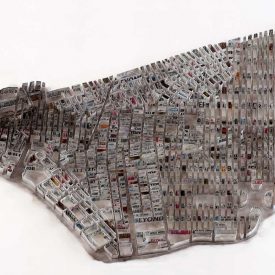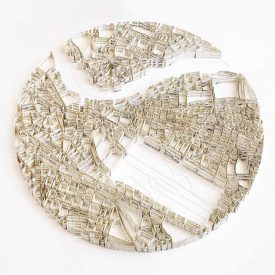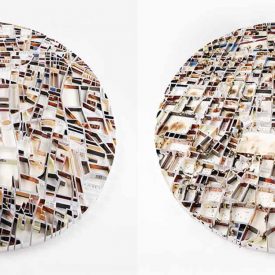Music score from Tchaikovsky’s 1812 overture and quote from “War and Peace”
“Almost in the center of this sky, above the Prichistensky boulevard, surrounded and convoyed on every side by stars but distinguished from them all by its nearness to the earth, its white light and it’s long uplifted tail, shone the huge brilliant comet of the year 1812 – the comet which was said to portend all manner of horrors and the end of the world” interior narrative of Pierre in Tolstoy’s “War and Peace” It is easy to imagine the fatalistic and superstitious thoughts in the minds of the Moscow populace as the French army drew close and the events of 1812 unfolded. Events which were to provide an experience to match the fatalistic fears.
The sculpture of Moscow is based upon the 1812 map depicting the damage caused by the burning of Moscow. The work incorporates that latter half of the aforementioned quote, this quote is carved into the form of the Moskva river and the line of the medieval walls that enclosed the interior of Moscow at the time. The work is constructed from segments of Tchaikovsky’s famous 1812 overture. The overture was written in 1880 to commemorate the defense of the Russian motherland and can be interpreted as a fairly literal depiction of the campaign.
Moscow had twice been burnt before, the fire of 1547 under Ivan the Terrible and the fire of 1626 under the reign of Mikhail 1 Romanoff. In both cases a tempest of extraordinary strength had arisen and multiplied the disaster. On the morning of September 16 1812 a hurricane was blowing over Moscow, many believed a curse was hanging over the city especially in conjunction with the sense of foreboding imparted by the great Comet.
The fire itself attained such a monstrous size as to seem almost supernatural. Montesquieu “It was pitch dark and the sight was terrifying and grandiose, almost sublime, so closely did it resemble the Apocalypse…one saw volcanoes whose immeasurable eruptions had no limits but the skies”. The heat was so intense that molten copper and lead ran in the streets. Napolean commented “The entire city looked like one vast whirlwind of fire that rose in a swirling spiral to the sky and coloured it brilliantly” later he is said to have uttered the words “This betokens great misfortunes for us” prophetic words indeed.. for most of his army were to perish in one of the coldest winters on record.
